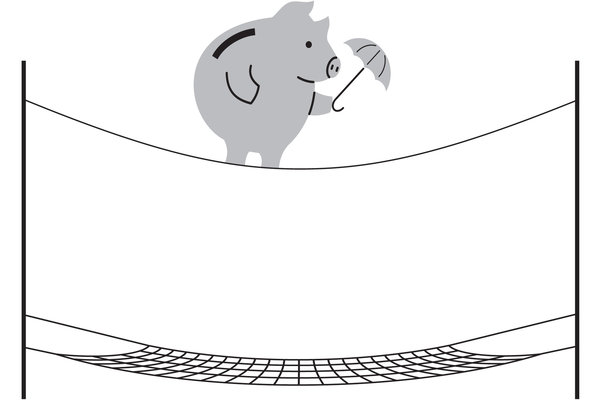Search
Democracy Links
Member's Off-site Blogs
saving our bacon .....

Central bankers barely averted a financial panic before Christmas by replacing hundreds of billions of dollars of deposits fleeing European banks. But confidence in the global banking system remains dangerously low. To prevent the next panic, it's not enough to rely on emergency actions by the Federal Reserve and the European Central Bank. Instead, governments should fully guarantee all bank deposits - and impose much tighter restrictions on risk-taking by banks. Banks should be forced to shed activities like derivatives trading that regulators cannot easily examine.
The Dodd-Frank financial reform act of 2010 did nothing to secure large deposits and very little to curtail risk-taking by banks. It was a missed opportunity to fix a regulatory effort that goes back nearly 150 years.
Before the Civil War, the United States did not have a public currency. Each bank issued its own notes that it promised to redeem with gold and silver. When confidence in banks ebbed, people would rush to exchange notes for coins. If banks ran out of coins, their notes would become worthless.
In 1863, Congress created a uniform, government-issued currency to end panicky redemptions of the notes issued by banks. But it didn't stop bank runs because people began to use bank accounts, instead of paper currency, to store funds and make payments. Now, during panics, depositors would scramble to turn their account balances into government-issued currency (instead of converting bank notes into gold).
The establishment of the Fed in 1913 as a lender of last resort that would temporarily replace the cash withdrawn by fleeing depositors was an important advance toward banking stability. But although the Fed could ameliorate the consequences of panics, it couldn't prevent them. The system wasn't stabilized until the 1930s, when the government separated commercial banking from investment banking, tightened bank regulation and created deposit insurance. This system of rules virtually eliminated bank runs and bank failures for decades, but much of it was junked in a deregulatory process that culminated in 1999 with the repeal of the 1933 Glass-Steagall Act.
The Federal Deposit Insurance Corporation now covers balances up to a $250,000 limit, but this does nothing to reassure large depositors, whose withdrawals could cause the system to collapse.
In fact, an overwhelming proportion of the "quick cash" in the global financial system is uninsured and prone to manic-depressive behavior, swinging unpredictably from thoughtless yield-chasing to extreme risk aversion. Much of this flighty cash finds its way into banks through lightly regulated vehicles like certificates of deposits or repurchase agreements. Money market funds, like banks, are a repository for cash, but are uninsured and largely unexamined.
Relying on the Fed and other central banks to counter panics is dangerous brinkmanship. A lender of last resort ought not to be a first line of defense. Rather, we need to take away the reason for any depositor to fear losing money through an explicit, comprehensive government guarantee. The government stands behind all paper currency regardless of whose wallet, till or safe it sits in. Why not also make all short-term deposits, which function much like currency, the explicit liability of the government?
Guaranteeing all bank accounts would pave the way for reinstating interest-rate caps, ending the competition for fickle yield-chasers that helps set off credit booms and busts. (Banks vie with one another to attract wholesale depositors by paying higher rates, and are then impelled to take greater risks to be able to pay the higher rates.) Stringent limits on the activities of banks would be even more crucial. If people thought that losses were likely to be unbearable, guarantees would be useless.
Banks must therefore be restricted to those activities, like making traditional loans and simple hedging operations, that a regulator of average education and intelligence can monitor. If the average examiner can't understand it, it shouldn't be allowed. Giant banks that are mega-receptacles for hot deposits would have to cease opaque activities that regulators cannot realistically examine and that top executives cannot control. Tighter regulation would drastically reduce the assets in money-market mutual funds and even put many out of business. Other, more mysterious denizens of the shadow banking world, from tender option bonds to asset-backed commercial paper, would also shrivel.
These radical, 1930s-style measures may seem a pipe dream. But we now have the worst of all worlds: panics, followed by emergency interventions by central banks, and vague but implicit guarantees to lure back deposits. Since the 2008 financial crisis, governments and central bankers have been seriously overstretched. The next time a panic starts, markets may just not believe that the Treasury and Fed have the resources to stop it.
Deposit insurance was also a long shot in 1933 - President Franklin D. Roosevelt, the Treasury secretary, the comptroller of the currency and the American Bankers Association opposed it. Somehow advocates rallied public opinion. The public mood is no less in favor of radical reform today. What's missing is bold, thoughtful leadership.
Amar Bhidé, a professor at Tufts's Fletcher School of Law and Diplomacy, is the author of "A Call for Judgment: Sensible Finance for a Dynamic Economy."
- By John Richardson at 5 Jan 2012 - 9:05am
- John Richardson's blog
- Login or register to post comments
Recent comments
10 hours 5 min ago
15 hours 7 min ago
16 hours 6 min ago
17 hours 36 min ago
19 hours 25 min ago
1 day 5 hours ago
1 day 6 hours ago
1 day 6 hours ago
1 day 12 hours ago
1 day 14 hours ago